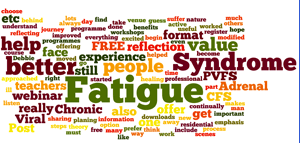CFS/ME
Can you get a better nights sleep and improve your health and happiness?
Is your mind busy when it’s time to rest and sleep? Do you have problems switching off at bedtime? Mind active and won’t slow down? Do you toss and turn because your thoughts won’t let you rest?
If that image of being too restless to sleep sounds like you, you have a lot in common with many of the people I help and there is a good chance your flight or fight response is active.
So lets talk about one way to switch off the fight or flight response and quieten the mind down at bedtime. There are many ways to achieve this, and one I really like is to keep a gratitude journal.
Spending a few minutes each night to think about things you are really grateful for is a great way to calm the mind and body and trigger the relaxation response. Focusing on the things you have been grateful for during the day will help you to let go of the things that were worrying you and help you get a good nights sleep.
But you do need to do it properly; robotically going through things you think you should be grateful for is not the same! If you are aware of the work of Candace Pert, you will know that your thoughts trigger the release of chemicals that flood the body, but that does not really happen if you think the thoughts in a detached fashion. You need to think the thoughts with your heart too.
Why is this Important?
It is really important that the fight or flight response is turned off and the relaxation response is triggered for sleep. Normally during sleep our bodies and minds should go through cycles of healing and repair, but these cycles are associated with being in a relaxed state. When we are stressed they are put on hold and your body does not heal and repair as it should.
So if you want to be healthy and happy triggering the relaxation response just before sleep will help.
It seems odd to think we can be stressed while sleeping, but studies have shown that some people, like those with CFS/ME, do actually stay stressed during their sleep. So spending a few minutes contemplating what you are grateful for or what has gone well during the day is one way to switch off the fight or flight response.
Gratitude is great because it focuses you on what you have, not what you want or what you would like. I buy a nice little note pad for those that take part in my workshops, so they can use it as a journal and I urge you to buy something special too. Having a nice book to write in and maybe a nice pen will make the activity special and keep you motivated.
How do I Use This?

Personally I would prefer a paper based journal as modern technology like phones tend to keep us stimulated, alert and possibly stressed. Much better to create your own paper based journal which can become a treasure trove of positivity for you, as it fills with things that you have been grateful for. Something like this is ideal.
Spend a little bit of time composing your thoughts and then write down what you have been grateful for today. Feel the feelings as deeply as possible with your heart.
One lady I was talking too, said how truly grateful she felt for the home she lived in, even though it was nowhere near as nice as she would like. This was something she had moaned about and criticised until hearing of a tragedy the other side of the world where people had lost their homes and were spending night outside. Another lady spent ages trying to think of something only to realise she was grateful for the comfortable warm bed she was laying in.
Another chap said he thought of a different person he knew each night, spending time remembering how they have or had positively contributed to his life. It’s a good thing to vary what you write to keep it fresh and relevant.
Sometimes when times are tough, or we are busy and tired it is easy to answer with our head only. You know what I mean, when you say something but it does not have that emotional resonance, that physical sensation that lets you know you have felt something with your heart. Notice the difference between thinking what you are grateful for and feeling it with your heart. It can help to place your hand on your heart and allow the thoughts of gratitude to flow from there.
I wonder if you maybe surprised at what you have been grateful for today?
Resources
The power of gratitude
10 Reasons Why Gratitude is Good for You
Please signup to our Newsletter for News, Workshops, Webinars, Blog posts and Freebies!
The One Thing you Must Learn For your Health
My journey back to full health from the misery of ME/Chronic Fatigue Syndrome was unfortunately longer than it could and should have been. If we (my husband, Pete, and myself) had known back then what we did now, the trial and error we went through could have been avoided and we could have honed in on those things which not only really helped me but also have since been scientifically proven to help.
One of the therapies I tried back when I was ill was Emotional Freedom Technique (EFT) otherwise known as Tapping. I will be blogging more about this technique in upcoming blogs but, in a nutshell, EFT is a simple yet highly effective self-help tool based on energy psychology. It is based on the Eastern philosophy of gently tapping on energy meridian points throughout the body, the same meridian points used in acupuncture and acupressure. When I was ill, exactly how or why EFT worked was irrelevant to me; what I simply recognised was that I felt better after using it. EFT is simply amazing at helping with emotional, physical and behavioural problems, as well as helping to overcome negative thoughts.
I was taught EFT by an experienced practitioner who showed me where the tapping points were and how to tap effectively, for maximum benefits and health gains. Once I was taught it I could then use it myself at home whenever I needed to. There were times when it did not seem to be as effective as it could have been and it was then that I knew it was time to see the practitioner again as she seemed able to ask the right questions to bring up emotions that might have been hiding under the surface and which I was too reluctant to tackle myself. However, in general, tapping at home several times a day seemed to really help me feel more relaxed, which ultimately helped me feel physically better as well.
As I said, at the time, I did not really care how EFT was helping me, only that I knew that it was. However it is really interesting now with hindsight to read emerging research on EFT which scientifically demonstrates the physical effects EFT can have and why it was so helpful to my recovery.
A randomized, controlled trial study(1) has recently shown how EFT can have a physical effect on the body by affecting the biochemical marker of stress called cortisol. Cortisol is a hormone, often referred to as the ‘stress hormone’ as it is often elevated when we are suffering from stress, anxiety and depression. In this study, 83 participants were divided into three groups. Group 1 were given one hour of traditional psychotherapy, ‘talk therapy’, group 2 were given one hour of EFT and group 3 were the control group and given no interventions. The cortisol levels of each group were measured before and after treatments.
The results were staggering. There were no changes in the cortisol levels for participants in group 1 and 3, but in group 2, the EFT group, the cortisol levels decreased by 24%. The researchers were so amazed by this response they thought that there must be an error in the readings and they recalibrated their equipment and retested. After a lot of retesting which showed the same results, they finally accepted that there was nothing wrong with their equipment: EFT worked!
If one single session of EFT can have such a dramatic reduction in cortisol levels, imagine what regular tapping could do for your health?
As we have seen in our webinars, the stress response which is responsible for elevated cortisol levels has wide-ranging, debilitating physical affects on our body. Something which starts life as an emotion or a negative thought can actually impact in a very real, physical way on how we are feeling, exacerbating our symptoms and hindering the body’s natural healing response. In my case, the insidious impact of cumulative stressors which had crept up on me and which not only meant then when I got ME/CFS my body was already in a compromised, weakened state but which also kept me ill for so long, was a key factor in my illness. Working with our clients, we know that I was not alone. So many sufferers are hindered by the effects of stressors which are keeping them stuck in ill-health, it is really tragic and frustrating that not more is being done to make sufferers aware of what can be done to help them.
Looking back with the knowledge we now have from the researchers, I am convinced that learning and using EFT was a key factor in my recovery. (In fact, it is now a key factor in my life, as when I recovered I went onto qualify as an Advanced Practitioner of EFT!) We now know how important this simple tool is for our clients and teach it to them so that we are really putting control of their health back into their hands, or rather at the tip of their fingers. If you would like to know more about this amazing tool which can revolutionise your health see Pete’s YouTube video and join us for one of our workshops and tap yourself back to health 🙂
Debbie
References
1. Garret Yount, Audrey Brooks and Dawson Church,The Effect of Emotional Freedom Technique on Stress Biochemistry; A Randomized Controlled Trial, Journal of Nervous and Mental Disease,2012
What You Need to Know if You are Losing Hope of Regaining Your Health
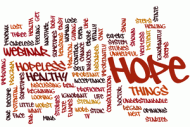 If you are a woman who has lost hope of regaining or even improving your health my next webinar is for you. It’s so easy to lose hope, a careless word from a Doctor, an unhelpful chat with another patient, a program on the TV. Sometimes it’s the little things that erode your hope over time, sometimes your hope is discarded ignorantly during a consultation. Maybe your diagnosis was a crushing experience, taking your breath away, leaving you numb, scarred, unable to think.
If you are a woman who has lost hope of regaining or even improving your health my next webinar is for you. It’s so easy to lose hope, a careless word from a Doctor, an unhelpful chat with another patient, a program on the TV. Sometimes it’s the little things that erode your hope over time, sometimes your hope is discarded ignorantly during a consultation. Maybe your diagnosis was a crushing experience, taking your breath away, leaving you numb, scarred, unable to think.
Studies have shown that if you want a chance of being healthy again, the worst state of mind is a stoic acceptance of fate, to become hopeless. One of the things I will show you on this webinar is that hope is vitally important.
In the face of ‘expert’ opinions and a system that seems most proficient of stealing control from you, it is understandable why you can end up feeling hopeless and like a mythical phoenix from the flames you can regain your hope of being healthy.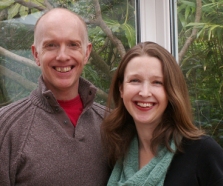
To help we will be discussing three reasons why your body has the potential for ‘self induced healing’ and looking at some real life stories. Most importantly we will be giving you practical steps to get started with. Choosing to register now is the first step of taking back control, deciding how you want to live you life.
So I really do hope you will choose to join us and just register now.
Looking forward to talking to you again.
Pete
It’s
Brain Fog Clouding your Day?
 Like many ME/CFS sufferers, I experienced debilitating brain fog for most of the time when I was ill. For those of you that haven’t experienced this symptom, brain fog is the term used to describe impaired mental and cognitive functioning. Years ago when I used to attend an aerobics class, I remember the teacher telling the class to imagine we were moving through mud (although the reasoning behind this is totally irrelevant to the issue in hand, I think the idea behind this is to imagine resistance so that the muscles of the body have to work harder!). Well, for me, brain fog is the cognitive equivalent of trying to move through mud. My thought processes seemed to go in slow motion and no matter how hard I tried to formulate a coherent thought, it was like trying to access information from some very slow, archaic computer, which clunked along seemingly operating but either not retrieving the correct information, or doing so so slowly that I had forgotten why I wanted it or garbling the information causing me confusion and frustration. Holding a sensible conversation was totally impossible; I could not follow logical trains of argument on even the simplest of topics let alone formulate responses. Following a short television programme or reading a few pages of a book, likewise ended up in a garbled and addled brain, confused, befuddled and exhausted by the sheer effort of trying to follow a linear trail of information.
Like many ME/CFS sufferers, I experienced debilitating brain fog for most of the time when I was ill. For those of you that haven’t experienced this symptom, brain fog is the term used to describe impaired mental and cognitive functioning. Years ago when I used to attend an aerobics class, I remember the teacher telling the class to imagine we were moving through mud (although the reasoning behind this is totally irrelevant to the issue in hand, I think the idea behind this is to imagine resistance so that the muscles of the body have to work harder!). Well, for me, brain fog is the cognitive equivalent of trying to move through mud. My thought processes seemed to go in slow motion and no matter how hard I tried to formulate a coherent thought, it was like trying to access information from some very slow, archaic computer, which clunked along seemingly operating but either not retrieving the correct information, or doing so so slowly that I had forgotten why I wanted it or garbling the information causing me confusion and frustration. Holding a sensible conversation was totally impossible; I could not follow logical trains of argument on even the simplest of topics let alone formulate responses. Following a short television programme or reading a few pages of a book, likewise ended up in a garbled and addled brain, confused, befuddled and exhausted by the sheer effort of trying to follow a linear trail of information.
Brain fog is an extremely common symptom for ME/CFS sufferers and I think I can safely say that all of our clients with ME or CFS have experienced this for at least some of the time before their recovery. But what exactly is brain fog? Well one hypothesis is that any stress impacting on the sufferer can exacerbate this symptom, the reason being is down to how our brain physiology changes when under stress.
Our brains have evolved significantly from the time 6 million years ago when we began to stand up and walk. Scientists believe that back then our brains were not so different from reptiles today. They could handle the essential functions of survival and little else. Eating, temperature control, running away or fighting, reproduction just think of what the average lizard does and you get the picture. As we evolved we developed new parts of brains with new functions. The first of these new areas is often referred to as the mammalian or limbic part as it has characteristics you associate with mammals. Emotions, feelings and basic communication are things you would normally associate with a dog or a horse. Look into a reptile’s eyes and you don’t see much emotion, but look into your dog’s eyes and we can often detect the emotion. The final new part of the brain is the cortex or neocortex; this is the clever part of brain that is involved with creativity, complex thought and language.
So how does this relate to stress? When stressed it is that old reptilian brain that takes over, and the rest of the brain goes on hold for a bit. If you think about it, this makes sense. When faced with a tiger, prehistoric man had few options. ‘Thinking’ would be likely to slow us down and result in a painful death! The part of the reptilian brain responsible for this prioritising of functions is known as the Amygdala. Daniel Goleman in his 1996 book Emotional Intelligence: Why It Can Matter More Than IQ, uses the phrase ‘Amygdala hijack’ to explain what happens, which I think sums it up very well. When the amygdala interprets a situation as a threatening it hijacks the brain, beginning the cascade of reactions involved in the fight or flight response.
Along with creating problems with our thought process, the amygdala also affects our memories. How many people remember of the details of a life threatening situation? How often does it all appear a “bit of a blur”? This is because stress affects our ability to store and retrieve memories[i]. Chronic stress in particular can negatively affect memory and learning[ii] Even now, when I try to remember fine details of my illness before I recovered, it still seems a blur, because I don’t think my brain really focused on storing this information at the time; it was too busy counteracting the stress I was under and the stress associated with the condition itself.
Stress effectively robs us of the ability to think of anything more complex than running away or fighting and chronic stress hampers our ability to remember and learn. I don’t know about you but this certainly does sound like Brain Fog to me.
Thankfully, once I had started on my holistic journey back to health the fog did gradually clear, as I took control of stress and my limbic brain took over again and thinking through mud became a thing of the past 🙂
Debbie
Sky Blue River
[i]Kuhlmann, S., Piel, M., Wolf, O.T. (2005). Imparied Memory Retrieval after Psychosocial Stress in Healthy Young Men. Journal of Neuroscience, 25(11), 2977-2982.
[ii]Pasquali, R. (2006). The Biological Balance between Psychological Well-Being and Distress: A Clinician’s Point of View. Psychotherapy and Psychosomatics, 75, 69-71.
What Every Health Conscious Woman Needs to Know about Stressors and Why!

This is the next webinar in our series of FREE webinars that we are offering. I really hope you will register now because this webinar is packed full of information that could change your life for the better.
Knowledge is power they say and I’m sure you will gain a lot of knowledge from this webinar. It is a vital piece of the health puzzle whether you are ill or not and used to be a part of our attendance programme for those suffering from CFS, ME and PVFS. We have yet to meet anyone who has been diagnosed with those conditions who does not have stress in their lives, but few understand the very detrimental effect it has on their physical health. The very process of being diagnosed with one of these conditions is extremely stressful for most people.
Part of the problem is that the intangible phenomenon we call stress, has become an insidious part of western living. More than 40 million of us living in the UK admit to suffering from some form of stress. In fact, only 17% of us state that stress does not have an impact on our lives. But even those that do believe stress has impact are often amazed at the sheer depth of the physical effects that stressors can have.
So to help you understand the full implication of stress we explain the three main reasons why stressors damage your health. This webinar will allow you to make knowledgeable choices and fully understand how reducing your stress will improve your capacity for physical health. This is one of the key areas in Debbie’s recovery from CFS/ME so we know just how important it is.
If you want to be in more control of your health and imagine a healthier future register now.
Please share the event so as many people as possible will benefit.
The Lightning Process
Lots of people ask me how our programmes compare with the Lightning Process, so I will give a brief overview of my understanding of that process.
The Lightning Process is often d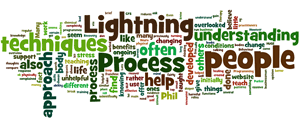 one by those with physical conditions who understand that the mind and body are linked. This is a scientifically well known fact that is often completely overlooked. There is a HUGE body of growing knowledge and evidence that shows how the stress response impacts us physically. I’m talking about the 1400 chemical reactions that take place when we encounter stressful stimuli that change the way our body functions. Most of that change is harmful long term and certainly reduces your bodies ability to heal and recover from a lot of conditions.
one by those with physical conditions who understand that the mind and body are linked. This is a scientifically well known fact that is often completely overlooked. There is a HUGE body of growing knowledge and evidence that shows how the stress response impacts us physically. I’m talking about the 1400 chemical reactions that take place when we encounter stressful stimuli that change the way our body functions. Most of that change is harmful long term and certainly reduces your bodies ability to heal and recover from a lot of conditions.
In essence the Lightning Process was developed to teach people how to break the cycle of unhelpful thoughts eg stress (or any other unhelpful thinking patterns) and trigger a more resource state that facilitates the body’s natural ability to heal. It is a training programme teaching you techniques to use rather than something that is done to you. As with most skills it relies on regular and consistent use of the techniques for you to gain the full benefits. You need to give it 100% to get the benefits, but that is the same with most things. Even medication can be less effective if you don’t believe it will help you. That is another scientific fact often overlooked.
The Lightning Process was developed by a chap called Phil Parker and at least initially was based on the techniques from of Neuro Linguistic Programming (NLP) and Cognitive Behaviour Therapy (CBT). After developing the process he turning it into a business training others to be facilitators. Many people find the process so life changing that they choose to train and offer the process to others. Phil seems like a fairly astute businessman and has created almost a franchise approach.
I have come across many people that have found the Lightning Process life changing and worth the money. In my opinion the techniques are useful in certain circumstances and I have taught similar approach to many people. However, we have also had clients who have previously done the Lightning Process and then lost faith in what was taught. The people that we have worked with complained of little ongoing support, no understanding of why they were doing the techniques or why sometimes it just did not seem to help them. Many Lightning Process practitioners only seem to do the Lightning Process and perhaps lack a deeper understanding of how to help people. As with Doctors there are good ones and bad ones out there.
The Lighting Programme is only going to be beneficial for those with unhelpful thoughts and beliefs about their condition, because those thoughts potentially mess up your body’s ability to heal itself. We all have that ability and it is well documented. I have also heard of trainers who seem to think that people will magically become physically fit after their programme. By fit I mean able to walk every day and perform physical tasks from being chronically ill. Muscles and physical stamina do not work like that, they do need to be regained gently and slowly.
If it’s ok with you, I’d like to tell you a bit about my approach? Because my approach is rather different.
I have been teaching and coaching people most my life and I find people appreciate knowing a little about why and how things work. That understanding is beneficial because often there are set backs to your healing and knowing why can help keep you motivated. I also teach a several different techniques because some techniques are better than others for some people and some situations. I also believe ongoing support is also important and offer that via email, calls and top up sessions. The ethos behind both programmes are the same though, that the body has amazing abilities to heal given the opportunity and both programmes aim to teach you techniques that will give your body that opportunity to be as healthy as it can be. However, I also believe that to create optimal health and the potential for healing you should take nutrition, activity, connections and spirituality into account.
If you would like to know more I often run free webinars, you can see those on our CFS Recovery website or find out more about my work on my main website
Alternative and Effective Treatments for CFS & ME?
Video Posted on Updated on
If you are interested in FREE webinar I am running signup here: https://attendee.gotowebinar.com/register/5316282007670467840

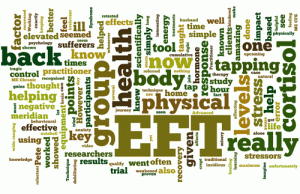
 Your cells need a full spectrum of vitamins to enable them to produce energy and fight free radicals. B vitamins are important here. Additionally, as your cells are protected by a membrane which relies on a good supply of healthy fats, it is important that your diet includes fats such as omega 3 to ensure that the outer membranes of your cells are strong and healthy.
Your cells need a full spectrum of vitamins to enable them to produce energy and fight free radicals. B vitamins are important here. Additionally, as your cells are protected by a membrane which relies on a good supply of healthy fats, it is important that your diet includes fats such as omega 3 to ensure that the outer membranes of your cells are strong and healthy.